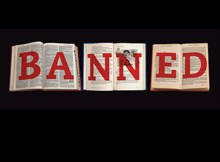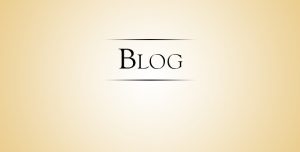All the Cool Kids Read Banned Books


Yesterday marked the first day of banned books week this year, and there is much to celebrate. According to the event’s webpage, the week is an annual celebration of intellectual freedom from censorship that was kicked off in 1982 in response to mounting censorship of literature in schools. Since its inception, “[m]ore than 11,300 books have been challenged,” the website states.
One would hope the trend of banned books would have faded over the past few decades, but in the past month alone both Ralph Ellison’s 1952 Invisible Man and Cuban-American Cristina García’s 1992 Dreaming in Cuban have been banned from high schools for their content.
Ellison’s Invisible Man, which tackled twentieth century racial prejudice and beat out Hemingway’s Old Man and the Sea and Steinbeck’s East of Eden for the National Book Award, has been banned from school libraries in Randolph County, North Carolina. One school board member reportedly said the book had no “literary value.” Invisible Man has already been banned in the past from Pennsylvania, Wisconsin and Washington state schools.
García’s Dreaming in Cuban, which follows the multi-generational lineage of women in a family in revolutionary Cuba, has been banned from classrooms in Sierra Vista, Arizona. The novel has been referred to as “porn” and “child pornography” by those opposing the book’s inclusion in school curriculum. Dreaming in Cuban was also a finalist for the National Book Award.
I’d like to believe there are no racial implications in the banning of these books, but at least in Arizona’s case, the state doesn’t have a very flattering history of racist school curriculum. But that doesn’t make the banning any less ridiculous and, ultimately, meaningless.
Public school officials need to realize the danger they place themselves in when they support censorship in the era of free information and the internet. They’re fighting an embarrassingly losing battle against the exchange of ideas in America, showing how dispensable the censored curriculum they offer really is.
Here’s my advice to parents and students.
Read as many banned books as you can. Don’t just read banned books during this week, make a lifelong habit of gorging yourself on all kinds of literature with brutal and voracious hunger. Be especially curious of banned literature, because censorship throughout history has been reserved for the most frighteningly powerful words. According to the banned books week webpage, Ellison and García find themselves among some staggeringly brilliant names and titles, including Twain’s The Adventures of Huckleberry Finn; The Autobiography of Malcolm X; Toni Morrison’s Beloved; Jack London’s The Call of the Wild; Joseph Heller’s Catch-22; Tennessee Williams’s A Streetcar Named Desire; Zora Neale Hurston’s Their Eyes Were Watching God; Harper Lee’s To Kill a Mockingbird; Allen Ginsburg’s Howl; and, laughably, even Ray Bradbury’s literary censorship novel, Fahrenheit 451.
Take a weekly family drive to your city’s public library, or visit mom and pop bookstores–both desperately need you to walk through their doors as often as possible. If you can’t find what you’re looking for there, consider finding free e-book versions of classic literature at the Project Gutenberg website. In fact, throw them a few dollars in donation. The page offers over 42,000 books in the public domain and many more via affiliate sites.
Trade books with your friends and family, and buy them as gifts.
My advice to school officials is this. Don’t allow your libraries, your school curriculum, to become expendable. Don’t make a mockery of learning. Don’t speak in ignorance about books that added incalculably more to the public conversation when they were published than you could ever take away by removing them from your shelves. Help the kids in your schools become mature adults by giving them the benefit of the doubt; trust them, and guide them through the mature ideas that make these works so integral to our society. Make them care and keep them in the classroom, because the more books you ban, the harder your communities will push to make sure that instead of smoking, the cool kids are reading banned books in the bathroom.


